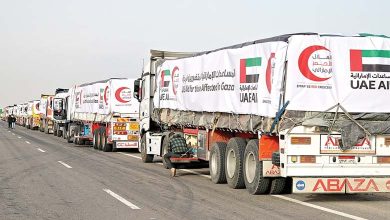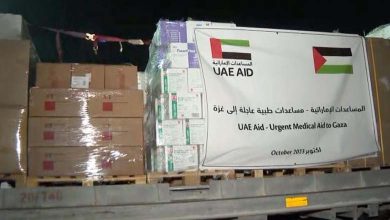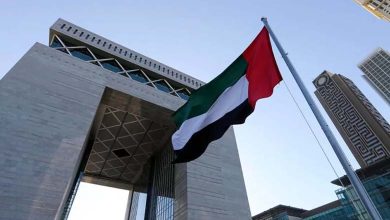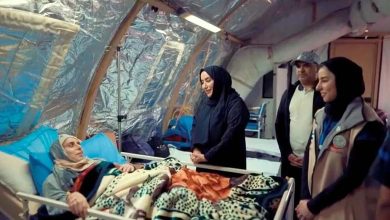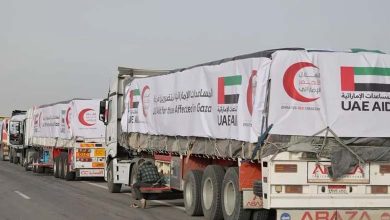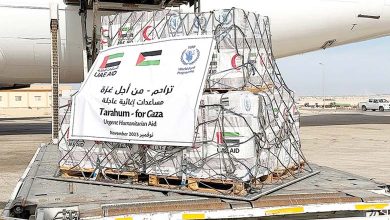International Reports Expose Qatar’s Human Rights Violations and Muzzling
Practices of the Al-Hamdeen system: Torture of workers and harassment of opponents and workers

It is no surprise that we are talking about the Qatari system, which is considered the most infringing of rights, according to numerous international and human rights reports, which confirmed that Doha is marketing itself to the world as a law-abiding country that achieves gender equality, but its black record shows the opposite.
While al-Hamdeen has worked to support terrorist organizations and turn public opinion under the pretext of liberties, and to finance media companies to spread lies and fabricate information, it has also established legislation and procedures that will silence its people, defeat their will and deprive them of any attempt to express their opinion or expression through a huge body of laws that are extremely harsh, as is not the case in any political system in the world at present.
Qatar’s Penal Code includes provisions that would prevent people from dealing with foreign parties, media or non-media, or publishing news about the internal situation in the country. Otherwise, he would be imprisoned and imprisoned for 5 years for anyone who criticized the Emir, his Deputy, the Crown Prince or those who criticized the Emir’s exercise of powers.
In 2020, the Qatari Emir promulgated a law to add a new article to the Penal Code (article 136 bis), which was added by: The Law of 2/2020), to be an additional sword that is directed at opponents and journalists who express their opinion on any matters related to the country, was issued in broad terms so that the judge can attack any citizen, let alone the opposition or journalist. For example, when a citizen publishes news or statements that did not receive the approval of the Amir or his Deputy, the judge can imprison him for five years, after describing them as inciting public opinion or affecting the social system.
Last year in Geneva, the report of the Office of the United Nations High Commissioner for Human Rights revealed, as part of the work of the thirty-third session, some of the shameful practices of the Qatari system in the field of human rights and the black record of the Al-Hamdeen system, noting that the treatment of citizens and foreigners by the Qatari courts varies according to the nationality of the person or his economic or professional status, and that the Qatari Nationality Law No. 38 of 2005 states that naturalized persons enjoy less protection.
The report added that the prevailing perception among foreigners in Qatar is that the courts do not treat Qatari citizens equally, as well as foreigners are not treated on an equal footing, and that the treatment may vary according to a person’s nationality or economic or professional status in the country.
International human rights organizations have reported alarming stories about the situation of workers working at the 2022 World Cup facilities in Qatar, where a large number of workers have been infected with the coronavirus. At the same time, the Qatari government’s policies reveal that abusing the rights of those foreign workers is secondary to completing the construction of the facilities according to the timetable set by FIFA.
For more than 7 years, Qatar has been witnessing international investigations on the rights of workers who are holding the 2022 World Cup facilities, amid human rights calls to strip Doha of hosting the event, due to ongoing violations against foreign workers.
“An Amnesty International report had previously exposed the ill-treatment of migrant domestic workers in Qatar, which confirmed that they suffered severe working conditions, some beaten, sexually harassed and raped, based on interviews with 105 women, with around 85% saying they rarely or never had days off and their employers retained their passports.”
In the same context, the Maat Foundation for Peace, Development and Human Rights renewed its complaint to the United Nations special procedures against Qatar, after the Qatari authorities ignored previous complaints made by the institution based on the mandates received by the institution from concerned persons to submit urgent appeals and complaints to the special procedures for the cancelation of travel bans, and continued to arrest a number of citizens, including a member of the ruling family, as a punishment for their legitimate exercise in the peaceful expression of their views.
Last October, the Maat Foundation sent complaints to the UN special procedures, in particular the Special Rapporteur on the situation of human rights defenders and the Special Rapporteur on the promotion and protection of the right to freedom of opinion and expression, about the travel ban by the Qatari authorities of Sheikh Saud Khalifa Al-Thani, a member of the ruling family in Qatar, on the basis of an executive decision by the State Security Agency issued on 2 May 2019.
In this complaint, the Maat Foundation clarified the arbitrary measures and the continuous abuse of Sheikh Saud by the Qatari authorities.




